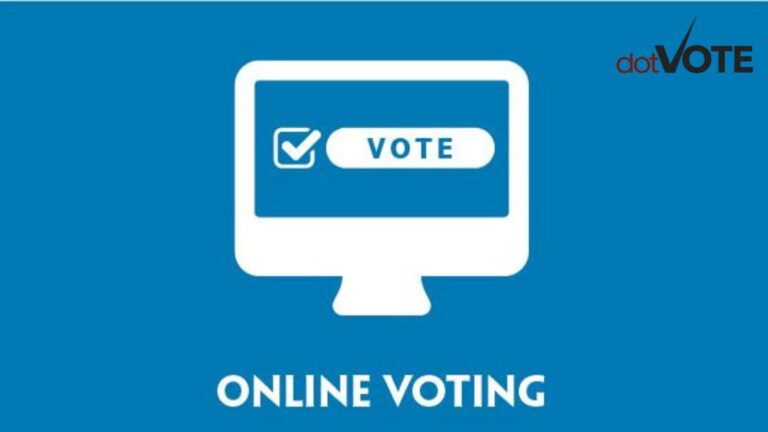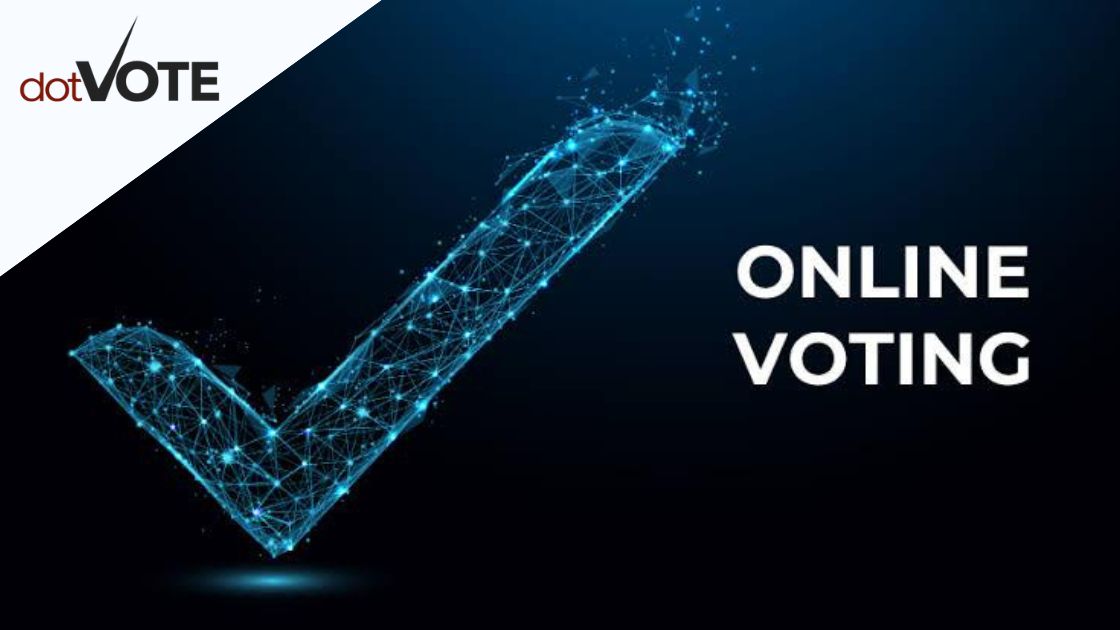The .vote domain is a top-level domain (TLD) introduced in 2015 to create a specific online space for political and voting-related content. This domain extension has gained popularity among political campaigns, advocacy groups, and election officials worldwide. In addition, with the growing use of technology in voting systems, the .vote domain has become an important tool for election-related organizations to communicate and engage with voters online.
The future trends in voting technology suggest that the use of digital platforms will continue to increase, with more and more voters turning to the internet to register to vote, access election information, and cast their ballots. The .vote domain is poised to play a key role in this transformation, providing a trusted and recognizable extension for election-related websites and platforms.
As blockchain technology and online voting systems become more widespread, the .vote domain will likely become even more valuable, providing a secure and transparent online space for election-related activity. Ultimately, the .vote domain has the potential to enhance the integrity and accessibility of voting systems around the world, making it an important component of the future of democratic governance.
The Future of .Vote Domains in Online Voting Technology
Online voting technology has come a long way in recent years, and the introduction of .vote domains is just one example of the many innovations driving this field forward. This article will explore the trends and innovations shaping the future of .vote domains and online voting technology.

With more and more people using smartphones and tablets, they can use these devices to cast their ballots. This approach can potentially increase voter participation, especially among younger voters more likely to use mobile devices.
The new trends and innovations in online voting technology provide more secure and convenient voting options worldwide. From blockchain-based systems to mobile voting to biometric authentication, AI-based fraud detection, and smart contract-based voting systems, many tools and technologies are available to ensure the integrity and security of online elections. We can expect to see even more exciting developments as these technologies evolve.
The latest trends and innovations in online voting technology
Online voting technology has been evolving rapidly in recent years to provide secure and convenient voting options to voters worldwide. This article will explore the new trends and innovations in online voting technology.
Blockchain-Based Voting Systems
Block-based voting is a new and innovative trend in voting technology that leverages the power of blockchain to enhance the security, transparency, and efficiency of the voting process. Voters in traditional voting systems cast ballots on paper or electronic systems that are vulnerable to tampering, manipulation, and fraud.
However, block-based voting is decentralized, encrypted, and recorded on a blockchain, creating a more secure and reliable election method. This makes blockchains highly secure and resistant to manipulation, making them ideal for recording votes in an election.
Block-based voting is also known for its efficiency. Traditional voting systems frequently necessitate significant resources and time for ballot production, delivery, and counting, resulting in delayed election results. However, block-based voting can simplify the process because votes may be cast digitally, removing the need for physical ballots. In addition, because blockchain is a reliable and transparent record, it minimizes the need for intermediaries such as election officials or third-party auditors.
Mobile Voting
Mobile technology is evolving, and as the world gets more connected, mobile voting in elections is expected to receive attention and discussion. Proponents claim that it can potentially make voting more accessible and convenient. At the same time, detractors stress the importance of strong security measures and fair access to ensure the integrity of the voting process.
The mobile voting trend refers to using smartphones or mobile devices to vote in elections or other voting processes. It is an emerging trend in voting technology that has gained traction in recent years due to advancements in mobile technology and increasing demands for convenient and accessible voting methods.
Mobile voting offers several potential benefits. First, it can potentially increase voter turnout by making it easier and more convenient for people to participate in elections, especially for those who may face barriers to traditional in-person voting, such as people with disabilities, elderly individuals, or those who cannot travel to polling stations physically.
Mobile voting can also streamline the voting process, reduce administrative costs, and enhance the accuracy and security of the voting process through features such as biometric authentication and end-to-end encryption.
Mobile voting also raises concerns about security, privacy, and equity. Critics argue that mobile voting may be susceptible to cybersecurity risks, such as hacking, tampering, or voter fraud, which could undermine the integrity of elections. There are also concerns about access and equity. For example, not all voters may have equal access to smartphones or reliable internet connections, potentially leading to a digital divide and the exclusion of certain groups from voting.
Mobile technology continues to evolve, and as the world becomes increasingly connected, mobile voting in elections will likely continue to gain attention and debate. Proponents argue that it has the potential to make voting more accessible and convenient. At the same time, critics emphasize the need for robust security measures and equitable access to ensure the integrity of the voting process.
Biometric Authentication
Biometric authentication in voting technology is a growing trend involving individuals’ unique physical or behavioral characteristics, such as facial recognition, fingerprints, or iris scans, to verify their identity during voting.
This technology aims to enhance the security and accuracy of the voting process by providing a more reliable and tamper-proof authentication method. In addition, biometric authentication can potentially address concerns related to voter fraud, impersonation, and identity theft, as it relies on unique biological traits that are difficult to replicate.
It can also streamline the voting process by reducing the need for traditional identification documents and paper-based processes, saving time and resources. However, there are also concerns surrounding biometric authentication in voting technology. Privacy is a significant concern, as the collection and storage of biometric data raise questions about protecting and potentially misusing individuals’ sensitive information.
Biometric authentication in voting technologies is expected to gain popularity. However, to ensure that biometric authentication in voting technology is done equitably, openly, and securely, it is critical to evaluate ethical, privacy, and security concerns carefully.
AI-Based Fraud Detection
Artificial intelligence (AI) is another innovation to detect and prevent fraud in online voting systems. Revolutionizing the way elections are conducted. With the increasing prevalence of online voting and the need to maintain integrity and security in the voting process, AI is being leveraged to detect and prevent fraud in real time.
AI-based systems use machine learning algorithms to analyze massive volumes of data, including voter registration information, voting history, and behavior, to discover irregularities that may suggest fraudulent activity. For example, these technologies can detect multiple registrations from the same IP address, unusual voting hours, or suspicious behavior that may indicate voter impersonation or ballot stuffing.
AI-based voting technology has the potential to significantly reduce the occurrence of voter fraud, enhancing the accuracy and fairness of elections. It can also enable election officials to identify and respond to fraudulent activities quickly, ensuring the integrity of the voting process and maintaining public trust in democratic institutions.
However, it is important to emphasize that using AI-based fraud detection in voting technology raises questions regarding privacy, bias, and potential data exploitation. Therefore, careful consideration of ethical and legal issues must be in place to preserve voter privacy and guarantee that technology is utilized responsibly and transparently.
Smart Contract-Based Voting Systems
Smart contract-based voting systems are another new trend in online voting technology. That leverages blockchain technology to facilitate secure, transparent, decentralized voting processes. Smart contracts are self-executing, programmable digital contracts stored on a blockchain that automatically enforce predefined rules and conditions.
In the context of voting, smart contract-based voting systems use blockchain technology to record votes, verify identities, and ensure the integrity of the voting process. Smart contracts can enable secure and transparent voting, as they are tamper-proof, immutable, and verifiable by all participants in the network. They can also automate vote counting, reduce the risk of fraud, and enhance the transparency and audibility of the voting process.
Smart contract-based voting has the potential to address challenges such as voter fraud, manipulation, and lack of trust in traditional voting systems. In addition, it can provide increased security, transparency, and efficiency to the voting process, potentially leading to higher voter confidence and participation.
Conclusion
Technology is evolving with time, so it is important for stakeholders, including election officials, technology providers, and policymakers, to collaborate closely to develop and implement robust online voting solutions that safeguard the integrity of the democratic process while maintaining trust and confidence among voters.
The future of online voting technology, including the .vote domain, holds significant promise. The latest trends and innovations in this field, such as AI-based fraud detection, blockchain-based voting systems, and enhanced user authentication methods, are transforming elections.
These advancements aim to increase transparency, security, and accessibility in the voting process, ultimately promoting democratic participation. However, online voting technology also requires careful consideration of potential challenges, such as addressing privacy concerns, mitigating cybersecurity risks, ensuring inclusivity and accessibility for all voters, and navigating legal and regulatory frameworks.
With continued innovation and responsible implementation, the future of the .vote domain and online voting technology can revolutionize how elections are conducted, making them more efficient, secure, and inclusive in the digital age.

